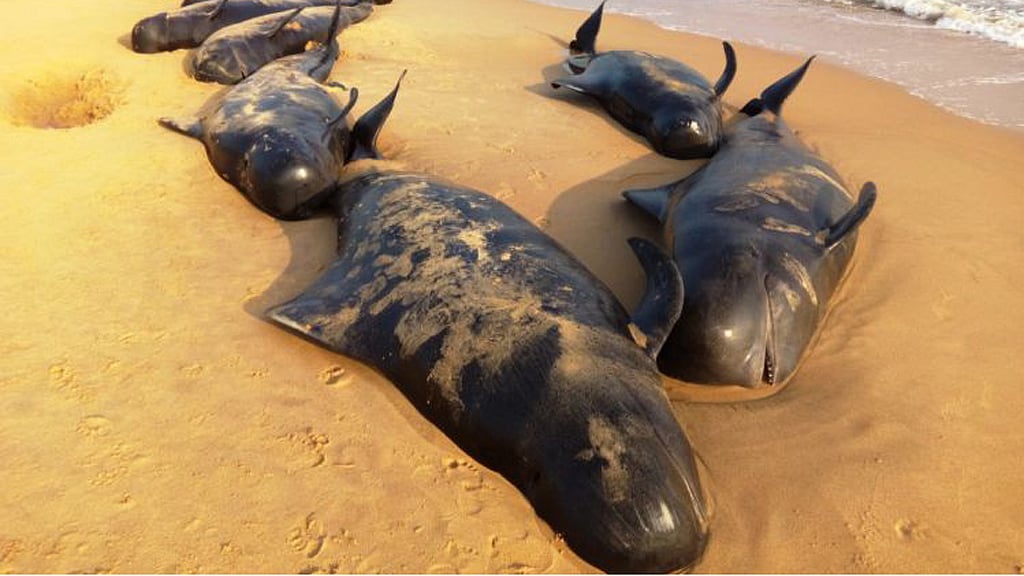Why Have Whales Washed Up on the Shores of Tamil Nadu?
Many whales washed ashore in Tuticorin died before they could be rescued.

advertisement
On January 11, a couple of whales washed up on the shores of Kulasekarapatinam at Thoothukudi in Tamil Nadu. The fishermen immediately rushed them back to the sea before they died. But by Tuesday morning, just a few kilometres away at Manapadu in the same district, more than 50 whales were on the beach. Fishermen and experts rushed to the rescue.
This is not the first time something like this has happened. Whales are known to wash up on the shores of both the coasts of the Indian peninsula.
Explainer
So why does this happen? We spoke to Dr Jiyalal Jaiswar, Director level scientist at the National Institute of Oceanography about it.
The ocean-bed closer to the shore in Thoothikudi is shallow, and the shallow section of the ocean-bed is very narrow by that coast. Every day, there are two cycles of flooding and ebbing by the shores. During flooding, water gushes into the coast, and when it is ebbing, the water recedes fast from the shores.
Dr Jaiswar explains that the whales move against the wave. So during the ebbing period, when the water recedes fast from the shores into the ocean, the whales move towards the coast. If they get too close to the coast and the water recedes fast, they end up landing on shallow shores with no room to swim back.
This is known to happen on the Western coast as well, but the shallow section of the shores are narrower on the south TN coast.
This is a worldwide phenomenon and there are other reasons too.
Whalefacts further explains, ‘Another common concept adopted by some marine biologists and scientists is that man-made sonar may be interfering with a whale’s echolocation and/or natural brain wave activity, causing whales to become disoriented or sick forcing them to flee towards shallow waters where they end up beaching themselves.’
(Ramanathan S works with The News Minute.)